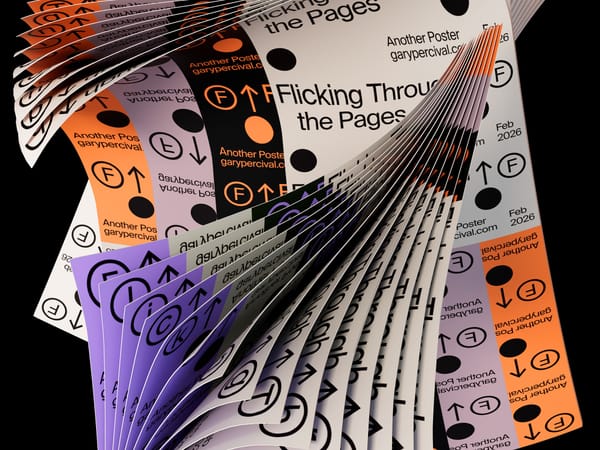Why Your Education Is Just One Chapter of Your Story
“Education is a starting point, not a blueprint for your career.”

As creatives, we often feel the weight of our educational background defining us—whether it’s the prestigious design school we attended, the self-taught path we blazed, or the traditional degree we later pivoted away from.
But here’s the truth: your education, while important, is merely one chapter in a much larger narrative.
It’s time to explore why this perspective matters and how it can transform your creative career.
The Myth of Educational Determinism
Success in creative fields often transcends traditional educational paths.
Many accomplished professionals come from unexpected backgrounds: a UI designer with a philosophy degree, an illustrator with a business background, or an art director who skipped formal design education altogether.
What they share isn’t a specific academic credential—it’s a dedication to growth and a talent for weaving their unique experiences into their creative work.
Education is a starting point, not a blueprint for your career.
It’s like the opening chapters of a story—important, but far from the defining conclusion. The rest of the narrative is yours to write.
The Real Value of Education in Creative Fields
Whether formal or self-directed, education provides essential tools and frameworks for thinking.
A graphic design degree might teach you colour theory and typography, while a liberal arts education could enhance your critical thinking and communication skills. These are valuable assets, but they’re starting points, not finish lines.
The true power of education lies not in the specific skills you learn but in developing your ability to:
- Analyse problems from multiple angles
- Adapt to new situations and technologies
- Communicate complex ideas effectively
- Learn independently and continuously
Remember, education is the spark that lights the fire, not the fire itself.
Why Your Story Needs Multiple Chapters
The creative industry evolves at a dizzying pace.
The skills that were essential five years ago might be automated today, while entirely new specialities emerge yearly. Your education—whether it happened in a classroom or online—can’t possibly prepare you for every challenge you’ll face.
This is where your other chapters become crucial:
The Experience Chapter
Your hands-on experience, including internships, freelance projects, and full-time roles, often teaches more than any course ever could. Each client interaction, project challenge, and deadline crunch adds depth to your narrative.
The Failure Chapter
The projects that didn’t work out, the pitches that fell flat, and the designs that missed the mark—these setbacks are invaluable learning opportunities that no curriculum can replicate.
Failure isn’t the end of the story; it’s the plot twist that shapes the next chapter.
The Connection Chapter
The relationships you build, the mentors who guide you, and the communities you engage with often prove more valuable than any degree or certification.
The Innovation Chapter
Your unique approaches to problems, the tools you develop, and the processes you refine become part of your professional signature.
These chapters combine to form a compelling, non-linear narrative that showcases your adaptability and creativity.
For instance, a motion designer might create a custom plugin to simplify complex animations, turning a niche solution into a sought-after tool within their industry. These innovations not only solve problems but also showcase your ability to think beyond conventional boundaries.
Building a Non-Linear Career Narrative
The most interesting stories rarely follow a straight line, and creative careers are no different.
Your education might have pointed you in one direction, but your path likely includes unexpected turns:
- Side projects that evolved into full-time pursuits
- Skills you developed out of necessity
- Innovations you created to solve specific problems
- Relationships that opened unexpected doors
Together, these elements create something more valuable than any single qualification: your unique professional narrative.
To illustrate, think of a designer who started in architecture, transitioned to UX, and now leads a team combining physical and digital spaces. Each pivot adds depth to their story, making their career more dynamic and unique.
Every creative journey is unique, but these actionable steps can help ensure you’re always building toward a compelling and impactful narrative.
Practical Steps to Expand Your Story
1. Embrace Continuous Learning
Make learning a habit, not an event. Start small to avoid feeling overwhelmed.
Set aside time each week to:
- Explore new tools and technologies
- Study adjacent fields that could inform your work
- Experiment with different creative approaches
2. Document Your Journey
Keep a record of your professional growth:
- Maintain a portfolio that highlights your process, not just the outcomes
- Write about your experiences and insights—whether publicly or for yourself
- Share your learnings with others in your field
3. Build Meaningful Connections
Invest in relationships that enrich your professional story:
- Mentor others in your field to share your expertise
- Participate in creative communities to stay inspired
- Collaborate with professionals from different backgrounds
4. Create Your Own Opportunities
Don’t wait for permission to add new chapters to your story:
- Initiate personal projects that stretch your abilities
- Identify gaps in your industry and fill them
- Create content that showcases your unique perspective
Reframing Your Educational Background
Whatever your educational background, it’s time to see it as an asset rather than a limitation.
Did you study something unrelated to your current creative work? That diverse background might give you unique insights others lack.
For instance, a background in psychology could inform your user experience design, helping you anticipate and understand user behaviours. A history degree might enhance your storytelling by adding depth and context to your visual narratives. An engineering background could bring systematic thinking and problem-solving to complex creative challenges.
Self-taught? Your initiative and resourcefulness are valuable traits that many employers seek.
The Future Chapter and Conclusion
The most exciting part of your story is that it’s still being written. Your education—whatever form it took—gave you tools to start your journey, but it’s your continued growth, experiences, and unique perspective that will define your success.
The creative industry values results over credentials, innovation over tradition, and ability over academic pedigree. The most compelling stories aren’t those bound by beginnings—they’re the ones shaped by the risks, lessons, and connections made along the way.
Take a moment to reflect: What chapter are you writing now? What actions can you take today to craft a narrative that’s uniquely yours?



